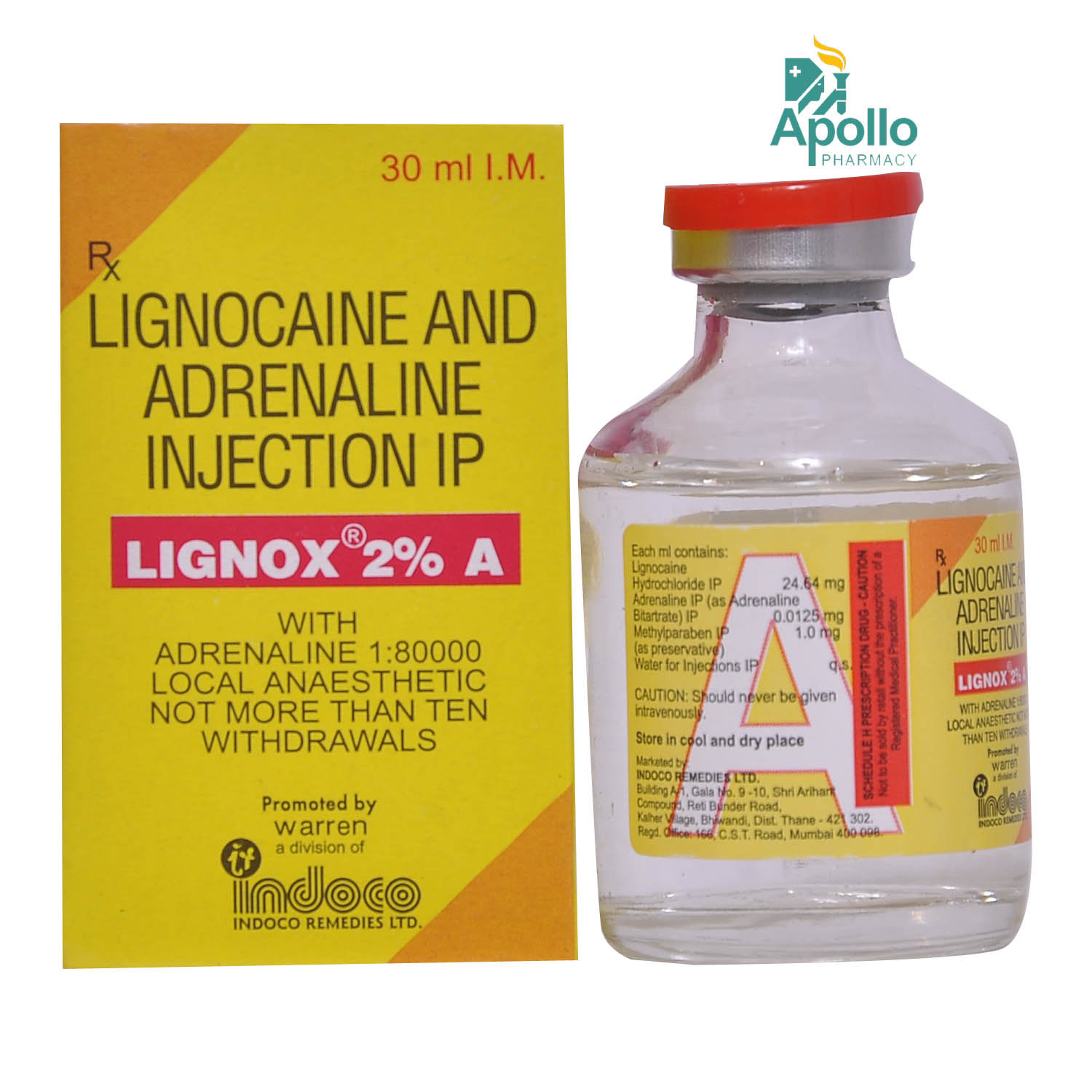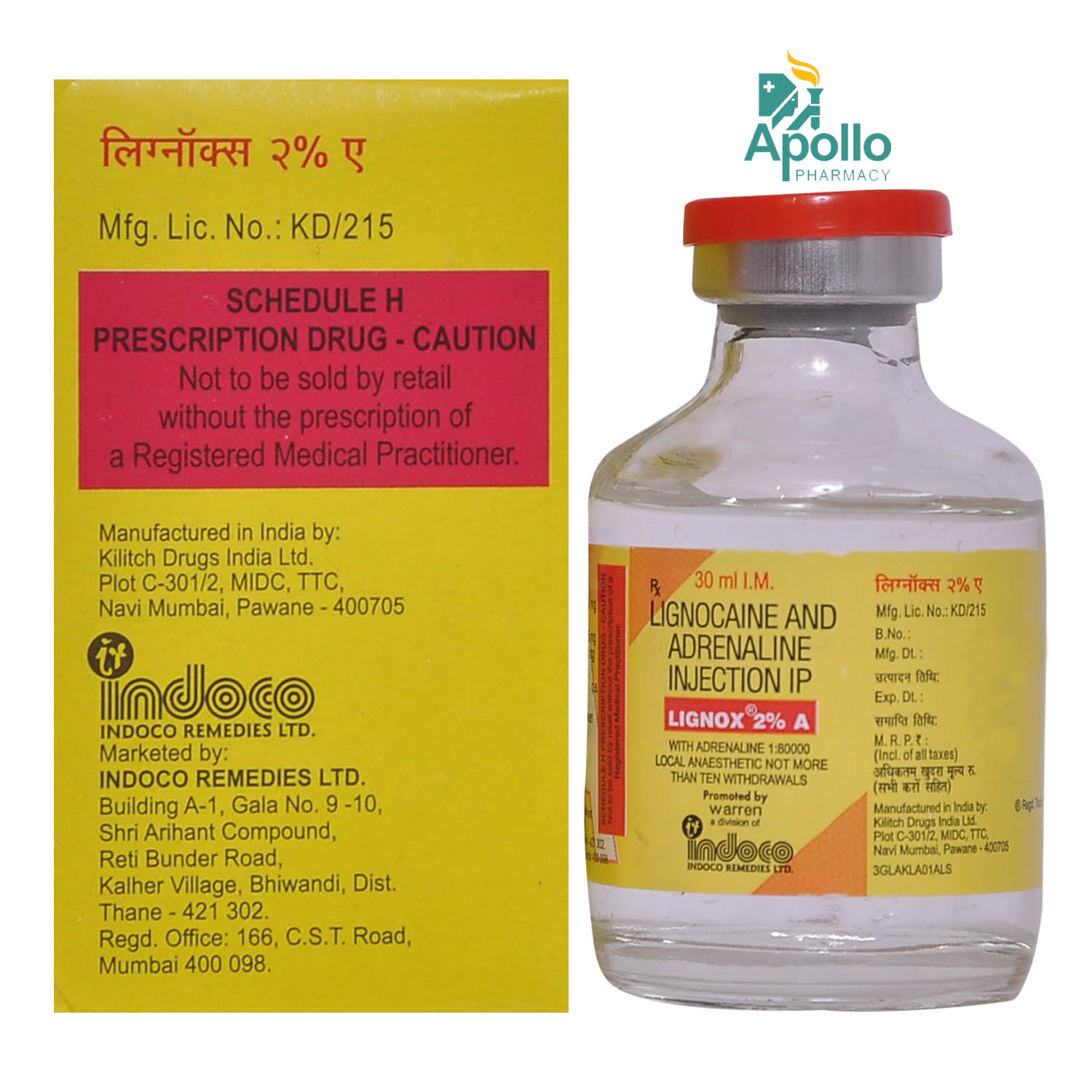Lignox 2% A Injection 30 ml
MRP ₹42.5
(Inclusive of all Taxes)
₹6.4 Cashback (15%)
Extra 10% Off with Bank Offers
Provide Delivery Location
Non returnable*
COD available
Online payment accepted
 Prescription drug
Prescription drugWhats That
 18 people bought
18 people bought in last 30 days
Composition :
ADRENALINE-0.0125MG+LIDOCAINE-24.64MG
Manufacturer/Marketer :
Indoco Remedies Ltd
Consume Type :
Parenteral
Expires on or after :
Return Policy :
Not Returnable
All Substitutes & Brand Comparisons
RX
Out of StockBiocaine ADR 24.64mg/0.0125mg Injection
Biochem Pharmaceutical Industries Ltd
₹32
(₹0.96/ 1ml)
25% CHEAPERRX
Out of StockExocaine Injection 30 ml
Idem Health Products Pvt Ltd
₹31.92
(₹0.96/ 1ml)
25% CHEAPER
FAQs

Have a query?
Buy Now
Add to Cart









